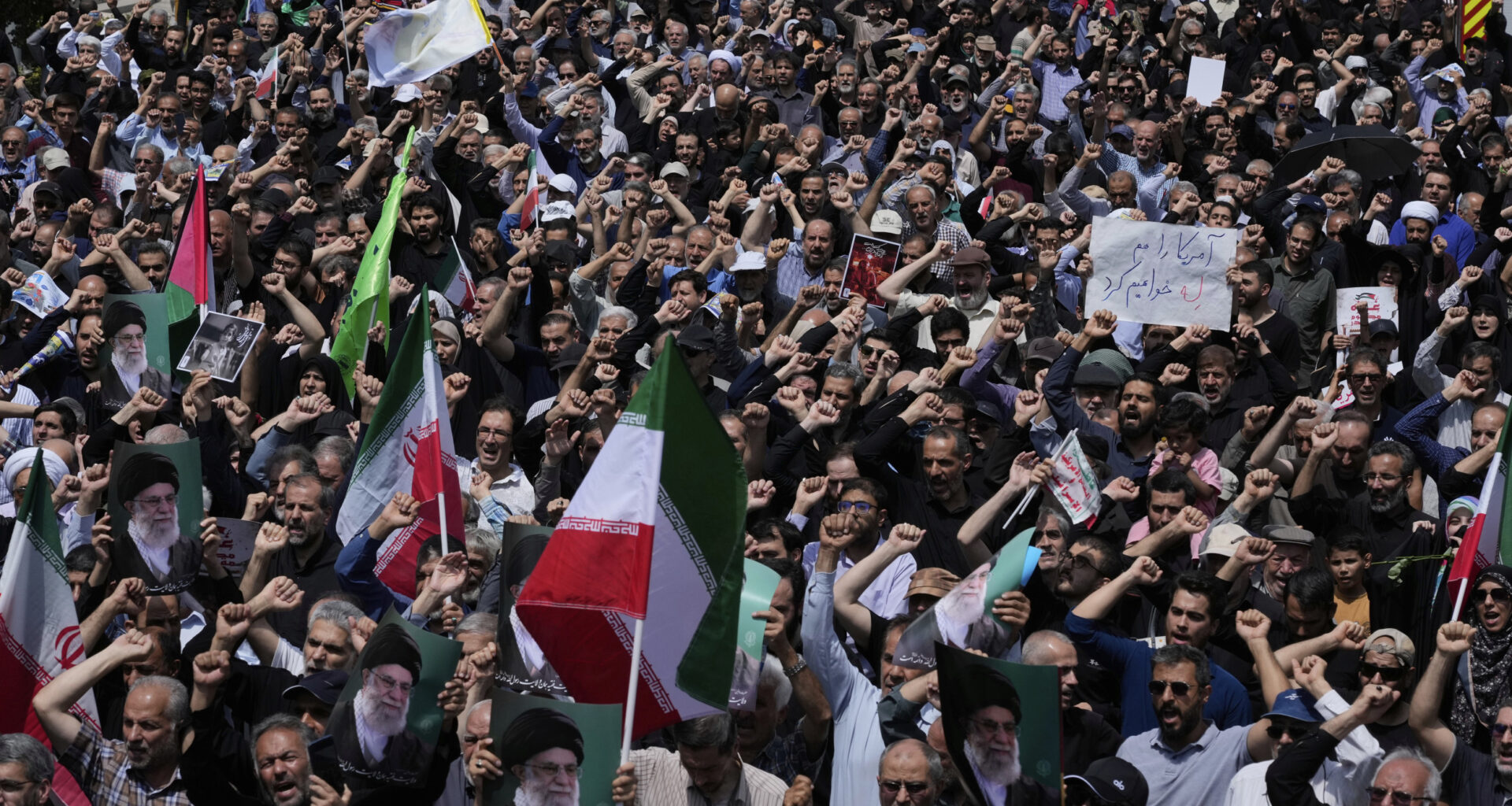Senior Iranian official Abbas Araghchi issued a stark message regarding the future of nuclear negotiations with Washington, telling the media that Tehran had no intention of returning to talks with the U.S. under pressure.
Newsweek has contacted the U.S. State Department for comment.
Why It Matters
U.S. threats and Iran’s hardened stance in nuclear negotiations increase the risks for a renewed military confrontation in the region. Iran and European countries are at odds over the soon expiring 2015 nuclear deal and Tehran’s restriction of the International Atomic Energy Agency (IAEA) from accessing key nuclear sites.
Iran is vowing a severe response to any renewed attacks by Israel or the U.S. and is demanding guarantees before engaging with Washington, along with financial compensation for damage to key nuclear facilities caused by bombings.

Iranian worshippers chant slogans in an anti-U.S. and anti-Israel protest after their Friday prayers in Tehran, Iran, on July 25.
Iranian worshippers chant slogans in an anti-U.S. and anti-Israel protest after their Friday prayers in Tehran, Iran, on July 25.
Vahid Salemi
What To Know
Speaking with state media on Wednesday, Araghchi, Iran’s foreign minister, confirmed that Tehran had received messages from Washington but noted that no concrete steps toward negotiations had been taken.
“Whether dialogue and negotiations take place in the near or distant future depends on what our national interests require,” Araghchi said, according to the U.K.-based outlet IranWire.
Iran is engaged in talks with the U.K., France and Germany, which have threatened a “snapback” mechanism that would reimpose U.N. sanctions lifted under the 2015 nuclear accord if Iran fails to commit to diplomacy and international nuclear oversight.
Araghchi said Iran was imposing “new conditions” for its relationship with the IAEA, which must now obtain approval from the Supreme National Security Council, an entity closely tied to the supreme leader and the military-security establishment, Iranian media reported.
Iran said it would not permit access to its nuclear facilities to IAEA inspectors, which the U.N. watchdog pulled out of the country following Tehran’s decision to suspend cooperation in the aftermath of the Israel and U.S. attacks.
“Regarding our nuclear program, we must say that the Agency has not performed well, especially in the last few months when they prepared a report, before the war, which led to a resolution in the Board of Governors,” Araghchi said on Wednesday, according to the Islamic Republic News Agency.
What People Are Saying
Iranian Foreign Minister Abbas Araghchi told state TV on Wednesday, as quoted by the Islamic Republic News Agency: “We have officially and explicitly stated that if they (the Americans) think that we will enter negotiations to achieve what they could not obtain through the military attacks, this will not happen now or in the future.”
What Happens Next
The U.S. and the foreign ministers of France, Germany and the UK have set the end of August as a de facto deadline for reaching a nuclear agreement with Iran or triggering the “snapback mechanism.”
